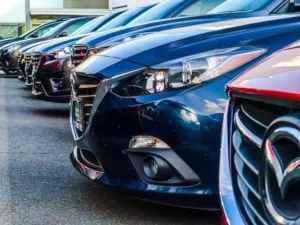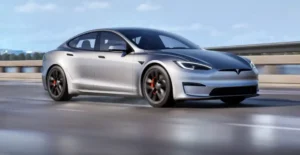France’s new environment minister, Nicolas Hulot, has announced a series of measures today aiming to make France a carbon neutral country by 2050.
The most radical one is a ban on petrol and diesel cars in 2040. That’s still over 20 years away and a great deal can and will happen in that time.
Several countries have suggested goals and have explored mandates to discourage the sales of gas-powered cars in the future, but France is aiming for an actual ban.
It’s later than others’ goals, like Norway aiming for 2025, but again, those are just goals while France is talking about a government enforced ban.
Also, those goals generally refer to the end of new petrol car sales, but Hulot is actually talking about a phase-out period starting now. It is being reported as “all petrol and gas cars” and the minister actually said “the end of the sale of petrol or diesel vehicles between now and 2040.”
They are offering incentives to lower-income households in order for them to replace their gas-powered vehicles with battery-powered vehicles. The government already has similar programs in place and the details of any change with today’s announcement are still scarce. We will update once they published the detailed plan.
Hulot, a former journalist and environmental activist, was newly appointed at the Minister of Ecological and Solidary Transition by the new French President Emmanuel Macron.
During a press conference earlier today, he referenced Volvo’s recent move in electrification. Though as we explained, Volvo is not getting rid of its gas-powered cars, they only said that they will be adding electric powertrains, hybrid and all-electric, to all their new car models starting in 2019.
They didn’t actually announce any phase out of their current gas and diesel-powered vehicles.
Either way, the goal is so far out (2040) that it should have little to no impact in the immediate. Though it is significantly more aggressive than the current estimates. Bloomberg Energy Finance believes that 35% of global new car sales will be electric by 2040 (they updated it to 54% today) and Morgan Stanley’s analysts place them at 50% of new car sales.
As we previously reported, we think those forecasts are way too conservative. Once all-electric powertrains, due to the falling cost of batteries, reach cost parity with internal combustion engines before accounting for cost of operation (petrol and maintenance savings), there will be virtually no reason for buyers to want petrol / diesel-powered cars over battery-powered cars.
At the rate battery costs are falling, it will happen soon (between 2020 and 2025) and the industry should transition their production capacity over the following 10 years.
The most radical one is a ban on petrol and diesel cars in 2040. That’s still over 20 years away and a great deal can and will happen in that time.
Several countries have suggested goals and have explored mandates to discourage the sales of gas-powered cars in the future, but France is aiming for an actual ban.
It’s later than others’ goals, like Norway aiming for 2025, but again, those are just goals while France is talking about a government enforced ban.
Also, those goals generally refer to the end of new petrol car sales, but Hulot is actually talking about a phase-out period starting now. It is being reported as “all petrol and gas cars” and the minister actually said “the end of the sale of petrol or diesel vehicles between now and 2040.”
They are offering incentives to lower-income households in order for them to replace their gas-powered vehicles with battery-powered vehicles. The government already has similar programs in place and the details of any change with today’s announcement are still scarce. We will update once they published the detailed plan.
Hulot, a former journalist and environmental activist, was newly appointed at the Minister of Ecological and Solidary Transition by the new French President Emmanuel Macron.
During a press conference earlier today, he referenced Volvo’s recent move in electrification. Though as we explained, Volvo is not getting rid of its gas-powered cars, they only said that they will be adding electric powertrains, hybrid and all-electric, to all their new car models starting in 2019.
They didn’t actually announce any phase out of their current gas and diesel-powered vehicles.
Either way, the goal is so far out (2040) that it should have little to no impact in the immediate. Though it is significantly more aggressive than the current estimates. Bloomberg Energy Finance believes that 35% of global new car sales will be electric by 2040 (they updated it to 54% today) and Morgan Stanley’s analysts place them at 50% of new car sales.
As we previously reported, we think those forecasts are way too conservative. Once all-electric powertrains, due to the falling cost of batteries, reach cost parity with internal combustion engines before accounting for cost of operation (petrol and maintenance savings), there will be virtually no reason for buyers to want petrol / diesel-powered cars over battery-powered cars.
At the rate battery costs are falling, it will happen soon (between 2020 and 2025) and the industry should transition their production capacity over the following 10 years.




